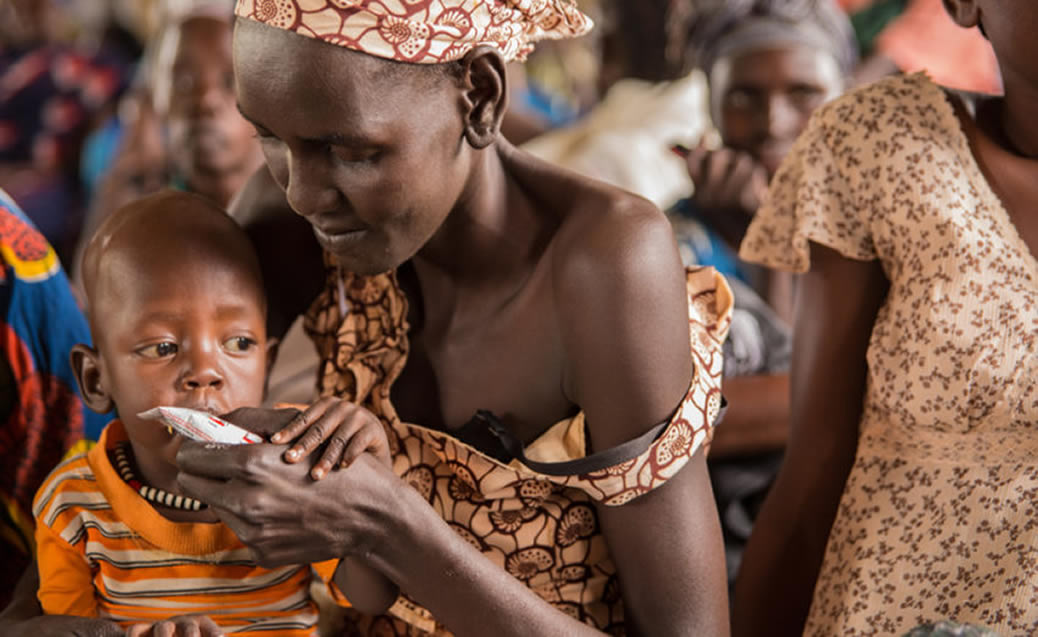Africa now faces the challenge of the double burden of diet related chronic diseases and the traditional nutritional deficiency disorders, such as Protein Energy Malnutrition (PEM), micronutrient disorders such as Iron deficiency anaemia, Iodine Deficiency Disorder (IDD), and Vitamin A deficiency.
Uganda is 'on course' to meet two targets for maternal, infant and young child nutrition (MIYCN). Some progress has been made towards achieving the target of reducing anaemia among women of reproductive age, with 28.5% of women aged 15 to 49 years now affected. Meanwhile, there is insufficient data to assess the progress that Uganda has made towards achieving the low birth weight target, nor is there adequate prevalence data. Some progress has been made towards achieving the exclusive breastfeeding target, with 65.5% of infants aged 0 to 5 months exclusively breastfed. Similarly, Uganda has made some progress towards achieving the target for stunting, but 28.9% of children less than 5 years of age are still affected, which is lower than the average for the Africa region (29.1%). Uganda is 'on course' for the target for wasting, with 3.5% of children under 5 years of age affected, which is lower than the average for the Africa region (6.4%). The prevalence of overweight children under 5 years of age is 3.7% and Uganda is 'on course' to prevent the figure from increasing.

